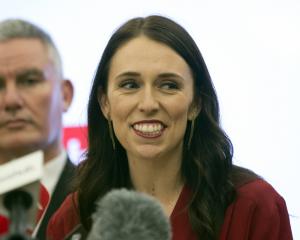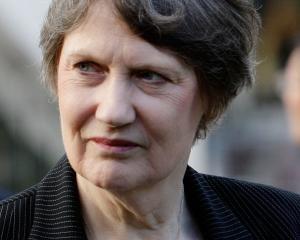Should local bodies bother about children? Could the Cabinet agree?
The Every Child Counts coalition of major not-for-profits has signed up 200-plus local election candidates to commit to pushing for their districts to be internationally accredited by Unicef as ''child-friendly''.
That includes ''working to support every child's right to a standard of living that meets their needs by reducing health, education and income disparities'', starting with a ''living wage'' for council and contractors' employees.
It requires more ''council investment in children and young people, particularly in the early years'' and ''building support for quality education'', accessible recreation and cultural facilities and child-friendly transport, plus ''planning and policy development that includes children's voices''.
You can see why retiring Local Government Minister Chris Tremain might want a rest. (In addition, that is, to not risking a loss in the next election to Stuart Nash, who got a big swing against him in 2011.)
To carry out the Every Child Counts pledges, councils would have to stray from the ''core business'' the Government's Cabinet has been imposing on councils by law.
The ''child-friendly'' campaign, in effect, says councils should do more, not less. Another who says that is Oliver Hartwich, who runs the New Zealand Initiative (former Business Roundtable).
He says councils should do much more and the Government correspondingly much less. Dr Hartwich hails from Germany, where he says cities compete to attract residents and businesses, including with many services which here are the Government's preserve.
He also cites Switzerland, where the constitution bars the federal government from doing anything unless the 26 cantons (states) agree to alter the constitution to allow it.
In turn the cantons do only what the 2408 communes pass up the line. And in the communes, citizens directly make a lot of the decisions.
''Localism'' brings neoliberals like Dr Hartwich and communitarians like the Greens together but not in the same ideological locality.
Neoliberals idealise a world of autonomous individuals. Greens idealise a world of co-operative, long-sighted people saving the planet (including, these days, humans) by ''thinking global, acting local''. Neither world is one Bill English, a Southland conservative, inhabits.
Nor, he insists, do New Zealanders generally.
''New Zealand is deeply statist and always has been,'' Mr English told a gathering last Wednesday, at which Dr Hartwich and Local Government New Zealand (LGNZ) launched a campaign for a ''new localism''.
(Mr English excepted Maori from his generalisation.)
But, he said, ''statism has peaked'' and ''has run its course'', in part because technology is loosening controls on information and in part because ''we know who we are'' and don't need the state to tell us.
State agencies have been ''arrogant and dismissive'', with ''no regard for people and the communities and families in which they live''. The Government, he said, was ''groping its way towards a better solution''.
He said school boards of trustees were ''remarkably sticky'' (that is, wanted by the people), trials in six localities testing how money was spent on young people had got mayors actively involved and locals controlled health south of the Waitaki River. So might the Cabinet adopt ''new localism''?
Mr English was blunt: ''Local government isn't the only vehicle for it'', his ''it'' being delivering services now done by the Government. The obvious alternatives are not-for-profits and private companies. So Mr English was not telegraphing more power to councils.
He couldn't, given the torrent of Resource Management Act and local body legislation kicking councils around the paddock, taking wider powers to override them and telling them to mind their (smaller) business.
This is the most centralising Cabinet since the early Labour cabinets - maybe since the one that abolished the provinces in 1876. The Cabinet's subliminal election message is that councils are now less worth bothering to vote for. So if the turnout is lower this time than 2010's nadir, the John Key Cabinet will be part of the cause.
Mr English's alternative explanation is that councils give people the impression voting cannot change things. LGNZ bothers that a low vote will encourage the Cabinet centralisers.
It voted in July to seek formal constitutional status. President Lawrence Yule is pushing a royal commission. Now there is ''new localism''.
But at a press conference neither Dr Hartwich nor LGNZ CEO Malcolm Alexander could specify criteria for deciding what services should be central and what local.
They want a ''debate'' but offered no parameters. There is also a question of what ''local'' is.
Auckland's local boards have many multiples the population of Stratford and Carterton councils. Still, councils have elections.
Not-for-profits and for-profits don't. Mr English's less ''statist'' country might be less democratic.
Which may be a reason to vote.
Colin James is a leading social and political commentator.












